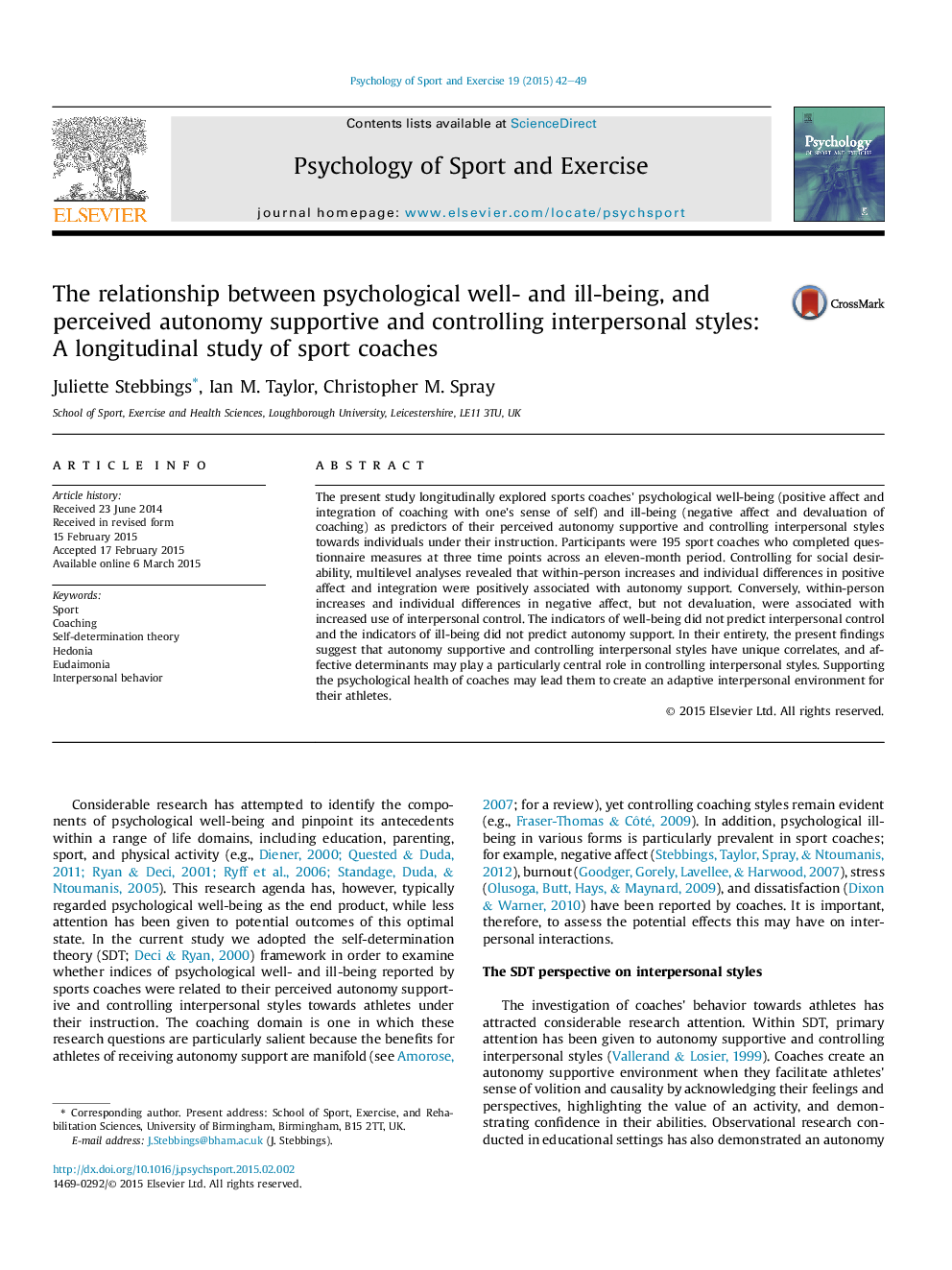| Article ID | Journal | Published Year | Pages | File Type |
|---|---|---|---|---|
| 894276 | Psychology of Sport and Exercise | 2015 | 8 Pages |
•We assess sport coaches' psychological health and interpersonal behaviors.•Well-being (positive affect and integration) is associated with autonomy supportive behaviors.•Ill-being (negative affect) is associated with controlling behaviors.•Supporting coaches' psychological health is important for both coaches and athletes.
The present study longitudinally explored sports coaches' psychological well-being (positive affect and integration of coaching with one's sense of self) and ill-being (negative affect and devaluation of coaching) as predictors of their perceived autonomy supportive and controlling interpersonal styles towards individuals under their instruction. Participants were 195 sport coaches who completed questionnaire measures at three time points across an eleven-month period. Controlling for social desirability, multilevel analyses revealed that within-person increases and individual differences in positive affect and integration were positively associated with autonomy support. Conversely, within-person increases and individual differences in negative affect, but not devaluation, were associated with increased use of interpersonal control. The indicators of well-being did not predict interpersonal control and the indicators of ill-being did not predict autonomy support. In their entirety, the present findings suggest that autonomy supportive and controlling interpersonal styles have unique correlates, and affective determinants may play a particularly central role in controlling interpersonal styles. Supporting the psychological health of coaches may lead them to create an adaptive interpersonal environment for their athletes.
